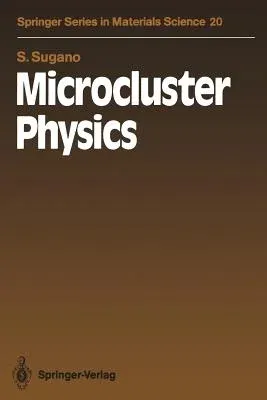Satoru Sugano
(Author)Microcluster Physics (Softcover Reprint of the Original 1st 1991)Paperback - Softcover Reprint of the Original 1st 1991, 23 January 2012

Qty
1
Turbo
Ships in 2 - 3 days
In Stock
Free Delivery
Cash on Delivery
15 Days
Free Returns
Secure Checkout
Part of Series
Springer Materials Science
Part of Series
Springer Series in Materials Science
Print Length
158 pages
Language
English
Publisher
Springer
Date Published
23 Jan 2012
ISBN-10
3642973329
ISBN-13
9783642973321
Description
Product Details
Author:
Book Edition:
Softcover Reprint of the Original 1st 1991
Book Format:
Paperback
Country of Origin:
NL
Date Published:
23 January 2012
Dimensions:
23.39 x
15.6 x
0.94 cm
ISBN-10:
3642973329
ISBN-13:
9783642973321
Language:
English
Location:
Berlin, Heidelberg
Pages:
158
Publisher:
Weight:
249.48 gm

